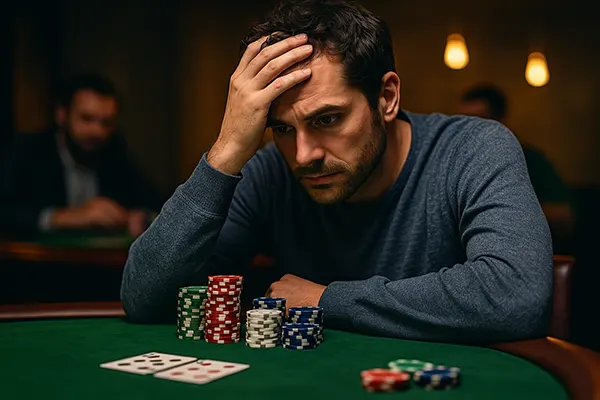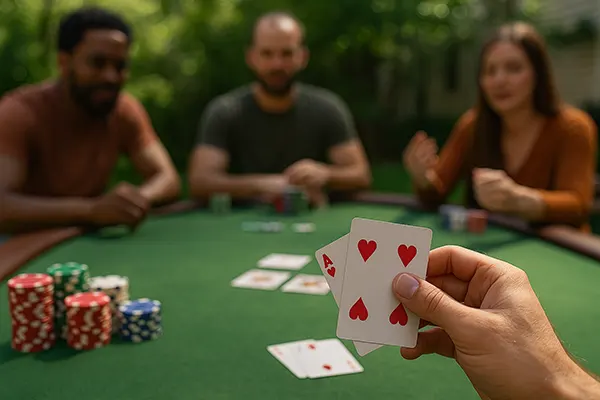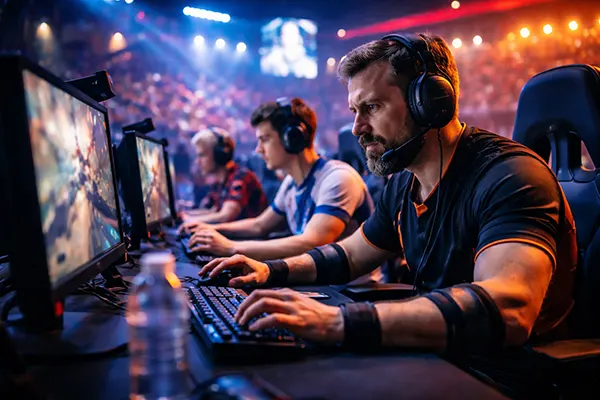Resilience and Psychology of a Player: Recovering After a Long Poker Losing Streak

Every poker player, regardless of their level of experience, eventually faces a losing streak. Such periods can feel endless and emotionally draining, testing not only one’s skills but also mental stability. The true challenge lies not in the losses themselves, but in how a player manages to recover, rebuild confidence, and return to the table with a clear mind and strategic precision.
Understanding the Mental Impact of Losing Streaks
Long periods of consecutive losses can affect a player’s confidence, concentration, and emotional balance. When expectations clash with reality, frustration and self-doubt often emerge. These emotions can cloud judgement, pushing players to make impulsive decisions that deepen financial and psychological setbacks.
Recognising the psychological nature of a losing streak is the first step towards recovery. Players often misinterpret losses as proof of poor skill, when in fact, poker is a game of long-term probabilities. Even the most skilled professionals face downswings that are statistically inevitable. Accepting this fact helps separate emotion from logic, restoring a sense of control.
Moreover, understanding that variance plays a huge role in poker outcomes can prevent unnecessary self-criticism. Emotional resilience comes from focusing on decision quality rather than short-term results. By analysing hands objectively and seeking constructive feedback, players can shift their mindset from despair to growth.
How Emotional Regulation Shapes Recovery
Managing emotions after a losing streak is vital. Anger, anxiety, or the urge to recover losses quickly can cause what poker players call “tilt” — a state of emotional instability that destroys rational play. Building awareness of one’s emotional triggers and learning how to pause during sessions can make a significant difference in performance.
Many professionals recommend mindfulness techniques, breathing exercises, or brief breaks between hands to regain composure. When a player’s emotional state is calm, the brain processes information more clearly, allowing for sharper analysis and improved strategic thinking. Emotional control transforms setbacks into opportunities for learning.
Maintaining perspective also means avoiding self-blame. Every hand, win or lose, is part of a broader mathematical pattern. Focusing on improving decisions rather than chasing outcomes keeps the player grounded and disciplined, which is crucial for long-term success in poker.
Developing a Structured Recovery Strategy
To recover effectively after a losing streak, a player needs a structured plan rather than emotional reactions. This plan should involve a review of recent sessions, identifying errors, and evaluating bankroll management. A losing streak is often an indicator that a player has drifted from their optimal strategy or ignored essential financial limits.
Bankroll management acts as the foundation of psychological stability. When funds are properly divided according to stakes and variance, the pressure of each loss decreases. A disciplined approach allows players to focus on decision-making rather than worrying about the risk of ruin. This structure provides a safety net that supports resilience under stress.
Equally important is seeking objective feedback. Analysing hand histories with other skilled players or using specialised software can reveal mistakes invisible during play. Such self-assessment builds both technical and mental endurance, gradually restoring confidence and readiness for future challenges.
The Importance of Setting Realistic Goals
During recovery, setting small, achievable goals helps players regain motivation without overwhelming themselves. Instead of aiming to recover all losses immediately, focusing on steady improvement brings sustainable results. Each small win or correct decision becomes proof of progress, rebuilding trust in one’s abilities.
Goals should be specific, measurable, and time-bound. For example, committing to analyse ten hands daily or limiting play sessions to a set number of hours ensures consistent growth. These micro-objectives prevent burnout and provide tangible signs of advancement, even during difficult periods.
Ultimately, resilience in poker is not about avoiding failure but about responding wisely to it. A player who learns from mistakes and approaches the game with balance and patience will inevitably regain stability, both mentally and financially.

Building Long-Term Mental Strength
True mental resilience develops over time through consistent self-reflection and discipline. Players who practise mental training outside the game, such as meditation, exercise, or journaling, improve their emotional stability and concentration. These habits reinforce the mind’s ability to remain objective under pressure.
Creating a balanced lifestyle is equally important. Sleep, nutrition, and social connections contribute to emotional health, which directly affects performance at the poker table. A stable personal environment prevents emotional extremes that could distort decision-making during challenging sessions.
Finally, embracing a long-term mindset helps players navigate future downswings more effectively. Understanding that poker success is measured over thousands of hands, not individual sessions, reduces emotional volatility. By viewing the game as a journey of continuous learning, players develop patience and confidence that no losing streak can permanently destroy.
Transforming Setbacks into Growth
Every losing streak can serve as a valuable learning opportunity. Analysing what went wrong — whether due to strategic errors, emotional instability, or simple variance — allows players to evolve. The key is to approach each downturn with curiosity rather than frustration.
Resilient players document their mistakes and track improvements over time. This process of reflection not only strengthens technical skills but also boosts mental endurance. Overcoming adversity repeatedly builds a kind of psychological immunity that enhances long-term performance.
Ultimately, the players who thrive are those who combine emotional intelligence with strategic discipline. By treating every challenge as a step towards mastery, they transform temporary setbacks into lasting success. Poker, at its core, rewards not only skill but also the courage to rise after every fall.




